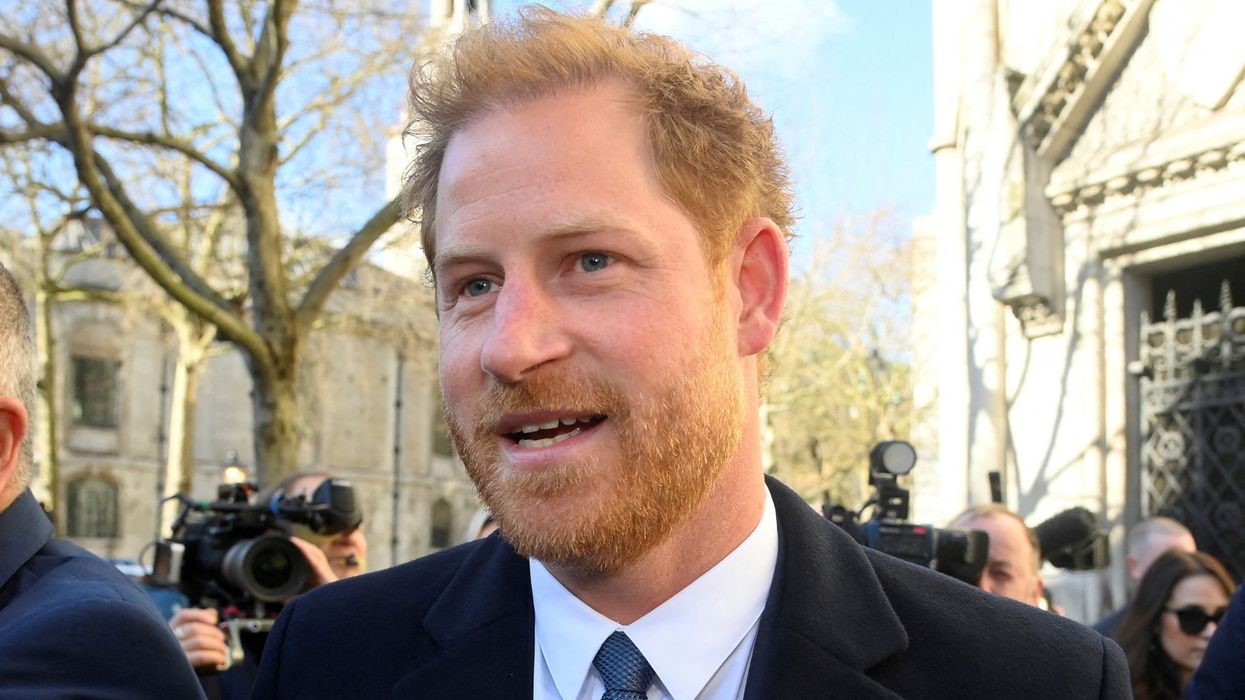Prince Harry will become the first senior British royal to give evidence in court for 130 years when he testifies next week in his lawsuit against a newspaper group he accuses of unlawful behaviour.
Harry, King Charles' younger son, will appear in the witness box at London's High Court as part of the case he and more than 100 other celebrities and high-profile figures have brought against Mirror Group Newspapers (MGN), publisher of the Daily Mirror, Sunday Mirror and Sunday People.
It will be the first time a senior royal has given evidence since Edward VII testified as a witness in part of a divorce case in 1870 and 20 years later in a slander trial over a card game, both before he became king.
Harry, who is fifth-in-line to the throne, has barely been out of the headlines in the last six months over his legal rows with the British press and the release of his memoir and Netflix documentary series in which he accused other senior royals of colluding with tabloid newspapers.
His appearance in court is likely to attract worldwide attention.
David Yelland, a senior communications adviser and a former editor of Rupert Murdoch's Sun tabloid newspaper - a publication Harry is also suing - said the royal family had long sought to avoid court cases, because they were not in control of the situation.
"These cases are often a case of mutually assured destruction. I don't think anyone will get out looking great," he said.
More than 100 people are suing MGN, with Harry and three others selected as test cases.
The trial, which began last month, has been told MGN journalists or private investigators commissioned by them carried out phone-hacking on an "industrial scale", and committed other unlawful acts to obtain information about the prince and the other claimants.
This was done with the knowledge and approval of senior editors and executives, the claimants' lawyer David Sherborne has said. MGN is contesting the allegations and says senior figures denied knowing anything about hacking and had any wrongdoing concealed from them.
The court was told by a journalist and biographer of Harry that one of those who knew about hacking was former editor Piers Morgan, now one of Britain's most high-profile broadcasters and an outspoken critic of the prince and his wife Meghan.
Morgan, who has denied any involvement in unlawful behaviour and has accused Harry of invading his own family's privacy, left his job as a presenter on a TV breakfast show after making outspoken remarks about Meghan.
"It's hard to escape the notion that he's using the courts, because he knows that when he is in the witness box, he will be believed," Yelland said. "It is the ultimate interview to be cross-examined by a hostile barrister in the witness box."
At the start of the trial, MGN, now owned by Reach, apologised in court documents and admitted that on one occasion the Sunday People had unlawfully sought information about Harry and that he was entitled to compensation.
But it has rejected his other allegations, saying he had no evidence for his claims. Instead, Buckingham Palace is likely to feature prominently in Harry's cross-examination, with MGN arguing that some information had come from royal aides.
(Reuters)





